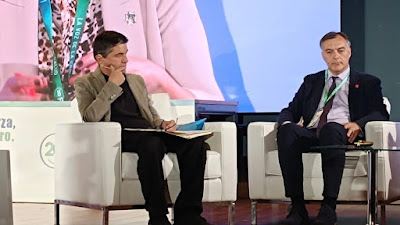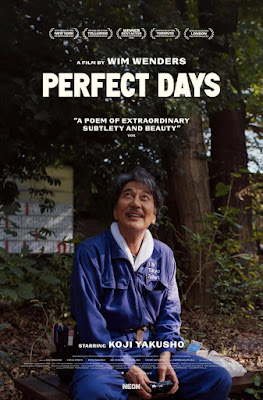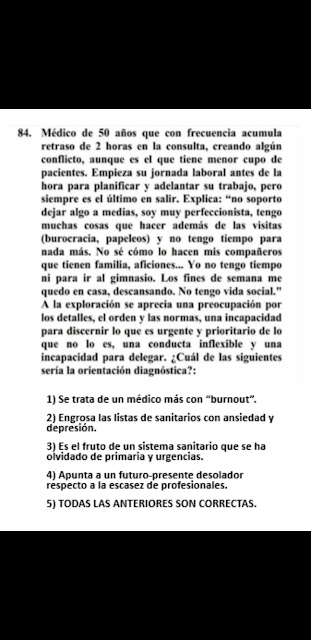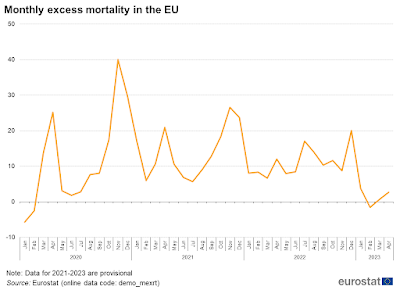Asociaciones de pacientes, inteligencia artificial y viajes en el tiempo.
Esta semana he tenido la oportunidad de participar en Encuentro Nacional de Pacientes que reúne anualmente a representantes de las asociaciones de pacientes nacionales entorno a una propuesta de ponentes de primer nivel que reflexionan sobre diversos aspectos de realidades que interesan a enfermos y familias. En un mundo complejo donde cada cuál tiene sus problemas y necesidades es lógico que los que padecen una enfermedad tiendan a juntarse y asociarse desde los primeros grupos de afectados por tuberculosis hasta el auge del VIH/SIDA y el cáncer. A estos siguieron una pléyade de asociaciones multicolor que en muchos casos recaban soporte de la industria farmacéutica que fabrica los correspondientes tratamientos y dedican fondos con fines sociales.
La propuesta de la mesa en la que participé era reflexionar sobre los nuevos roles de los profesionales en la sanidad. Participaban una enfermera y un farmacéutico con perfiles institucionales y un servidor, asistencial de Atención Primaria. No me resultó fácil hacer propuestas ante la situación de complejidad y sobrecarga que enfrentan las organizaciones sanitarias y sus profesionales. De hecho tras muchos años trabajando en grupos de innovación he llegado a la conclusión de que lo más disruptivo que podemos hacer los profesionales sanitarios es escucharnos entre nosotros y sobretodo a los pacientes. Sigo pensando en que la mayor tecnología en el mundo de la salud es usar bien la silla, pese a que el doctor Julio Mayol nos conmine a usar ChatGPT4 con toda la razón. Según él no hay ninguna duda, antes o después todos vamos a ser sustituidos por la inteligencia artificial.
La conferencia magistral del dr. Mayol fue estupenda. Con su enorme capacidad comunicativa y su potente narrativa pedagógica mantuvo al auditorio en un estado de enorme expectación. No es para menos, vivimos tiempos de cambio y las herramientas que tenemos encima de la mesa van a obrar transformaciones sociales e institucionales muy profundas. Entre ellas lo que se denomina la gran revolución: la transformación del agente entre el conocimiento y el usuario final, que dejará de ser humano. Se crearán agentes digitales que sustituirán a abogados, maestros, sanitarios… y que responderán a nuestras preguntas y problemas. Por eso lo previsible es que la sociedad se parta entre las minorías que sepan y puedan interactuar con los nuevos algoritmos y un resto abocado a recibir algún ingreso mínimo vital.
No pude quedarme a las siguientes mesas por problemas de agenda, ya saben una de esas reuniones digitales. Salí algo azorado y me fui caminando por el Retiro viendo y escuchando a una ponente lejana explicar las maravillas del nuevo ecógrafo que nuestro centro de salud recibió recientemente. Decidí regresar a mi casa lo más despacio posible para desacelerar el subidón de adrenalina que me ocasionó el hecho de que fallara mi transporte desde la sierra madrileña al hospital Gregorio Marañón, al que finalmente llegué con puntualidad británica. Los viajes en el tiempo existen, doy fe. Y si hablamos de velocidad y nos damos cuenta de que en conjunto vamos a acelerar como sociedad y como individuos más de lo que estamos ahora podemos inferir que la cosa se va a poner flamenca. Por eso pienso que a cada cual le vendrá bien una buena dosis de toma de conciencia para posicionarnos en una transición que no será sencilla, amenizada como está de potentes sorpresas económicas, políticas, climáticas y demás. ¿Aguantarán nuestras instituciones? ¿Aguantaremos los profesionales? ¿Aguantarán los pacientes?
https://www.youtube.com/watch?v=YK5iROG2wC0&list=PLSbl4edGTfe1f5Afy93OTDgqE76VLng4B&index=3
Patient associations, artificial intelligence, and time travel.
This week, I had the opportunity to participate in the National Patient Meeting, which annually brings together representatives from national patient associations around proposals from top-level speakers who reflect on various aspects of realities that interest patients and families. In a complex world where everyone has their own problems and needs, it is logical that those suffering from an illness tend to come together and form associations, from the earliest groups affected by tuberculosis to the rise of HIV/AIDS and cancer. These were followed by a plethora of multicoloured associations that, in many cases, receive support from the pharmaceutical industry that manufactures the corresponding treatments and allocate funds for social purposes.
The theme of the panel I participated in was to reflect on the new professional roles of healthcare professionals. It involved a nurse and a pharmacist with institutional profiles, and myself, a primary care assistant. It was not easy for me to make proposals given the complexity and overload faced by healthcare organisations and their professionals. In fact, after many years of working in innovation groups, I have come to the conclusion that the most disruptive thing we healthcare professionals can do is listen to each other and especially to patients. I still believe that the greatest technology in the world of health is using the chair properly, even though Dr. Julio Mayol urges us to use ChatGPT4 with all reason. According to him, there is no doubt that sooner or later we will all be replaced by artificial intelligence.
Dr. Mayol's keynote speech was excellent. With his enormous communication skills and powerful pedagogical narrative, he kept the audience in a state of great anticipation. It's no wonder; we live in times of change, and the tools we have on the table are going to bring about very deep social and institutional transformations. Among them is what is called the great revolution: the transformation of the agent between knowledge and the end user, which will no longer be human. Digital agents will be created to replace lawyers, teachers, healthcare workers... and they will respond to our questions and problems. Therefore, it is foreseeable that society will split between the minorities who know and can interact with the new algorithms and the rest destined to receive some minimum vital income.
I couldn't stay for the following panels due to scheduling issues, you know, one of those digital meetings. I left feeling somewhat flustered and walked through Retiro Park, seeing and hearing a distant speaker explain the wonders of the new ultrasound machine that our health centre recently received. I decided to return home as slowly as possible to calm down the adrenaline rush caused by the failure of my transport from the Madrid mountains to the Gregorio Marañón hospital, which I eventually arrived at with British punctuality. Time travel exists, I assure you. And if we talk about speed and realise that together we are going to accelerate as a society and as individuals more than we are now, we can infer that things are going to get lively. That's why I think everyone will benefit from a good dose of awareness to position ourselves in a transition that will not be easy, as it is adorned with powerful economic, political, climatic, and other surprises. Will our institutions endure? Will we healthcare professionals endure? Will patients endure?
患者协会、人工智能和时空旅行。
本周,我有机会参加全国患者大会,这个会议每年都会聚集全国各地的患者协会代表,邀请一流的演讲者就关于患者和家庭关心的各种现实问题进行反思。在一个复杂的世界中,每个人都有自己的问题和需求,患病的人倾向于聚集在一起,从最早受结核病影响的群体到艾滋病/艾滋病毒和癌症的崛起。这些之后是一大批多彩多样的协会,其中许多情况下获得制造相应治疗药物的制药行业的支持,并将资金用于社会目的。
我参与的讨论组的主题是反思卫生保健专业人员的新角色。讨论组成员包括一位具有机构背景的护士和一位药剂师,还有我,一名基层医疗助理。考虑到卫生机构和专业人员面临的复杂性和超负荷,对我来说很难提出建议。事实上,经过多年参与创新小组的工作,我得出了这样的结论:卫生保健专业人员能做的最具颠覆性的事情就是彼此倾听,尤其是倾听患者的声音。我仍然认为,在医疗领域中最伟大的技术是正确使用椅子,尽管朱利奥·马约尔博士以完全正确的理由敦促我们使用 ChatGPT4。根据他的观点,毫无疑问,迟早我们都将被人工智能所取代。
马约尔博士的主题演讲非常出色。凭借其出色的沟通能力和强大的教育叙事能力,他让观众处于极度期待的状态。这并非没有道理;我们正处于变革时期,桌上的工具将带来非常深刻的社会和制度变革。其中之一被称为伟大的革命:知识与最终用户之间的代理人转变,这将不再是人类。将创建数字代理人来替代律师、教师、医护人员等,他们将回答我们的问题和解决我们的问题。因此,可以预见社会将分裂为懂得并能够与新算法互动的少数群体,以及其他注定要接受某种最低生活保障的群体。
由于时间安排问题,我无法参加接下来的讨论组,你知道的,就是那些数字会议之一。我离开时感到有些困扰,漫步在Retiro公园,看到一个遥远的演讲者在解释我们的卫生中心最近收到的新超声设备的奇妙之处。我决定尽量缓慢地回家,以减轻从马德里山区到格雷戈里奥·马拉尼翁医院的交通工具故障所引起的肾上腺素飙升,最终我还是准时抵达了那里,保持了英国人的守时精神。时间旅行是存在的,我可以证明。如果我们谈论速度,并意识到作为一个社会和个体,我们将比现在更加加速,我们可以推断情况将会变得很有趣。这就是为什么我认为每个人都会受益于对这种转变有一种良好的认识,以便在这个过渡期中找到自己的位置,而这并不容易,因为它被强大的经济、政治、气候等方面的惊喜所装饰。我们的机构能承受得住吗?我们的医护人员能承受得住吗?患者能承受得住吗?








.png)



.jpg)
.jpg)








